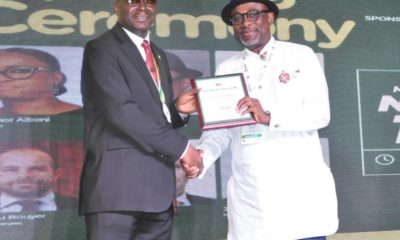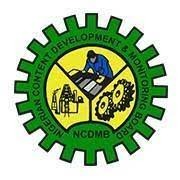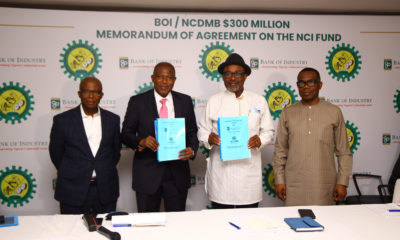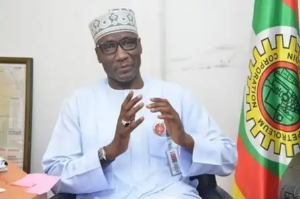Gas
Gas: Nigeria performs groundbreaking of Rungas, worlds largest Cylinder Plant
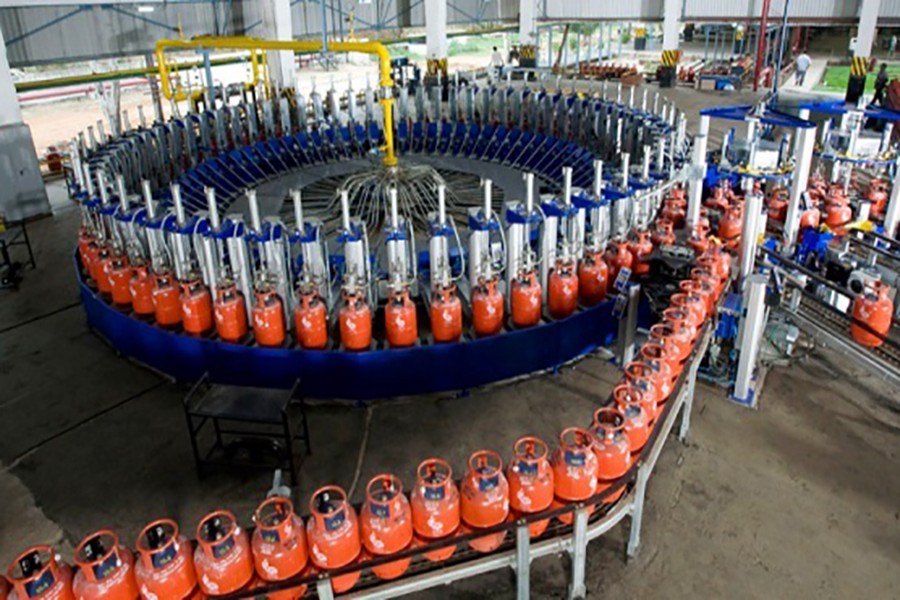
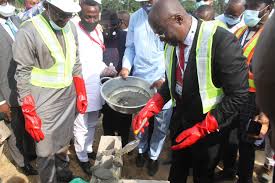
Nigeria’s Minister of state, Petroleum Resorces, Chief Timipre Sylva during the unveiling and groundbreaking ceremony of the NCDMB Gas Hub and Rungas LPG Plant in Lagos state.
LAGOS-From an undesirable position of importing LPG (cooking gas) cylinders, Nigeria is on course to become the world’s largest manufacturer of composite cylinders with the groundbreaking of Rungas ALFA plant performed on Friday by the Minister of State for Petroleum Resources, Chief Timipre Sylva at Alaro City, Free Trade Zone, Epe, Lagos State.
The facility alongside its sister plant – Rungas Prime in Polaku, Bayelsa State are being developed with equity investments by the Nigerian Content Development and Monitoring Board (NCDMB) and will on completion have a combined capacity of over 1.2 million cylinders per annum, surpassing the record held by a European firm that produces 900 cylinders.
The Minister described the cylinder plants as key to achieving deeper penetration of Liquified Petroleum Gas (LPG) and Compressed Natural Gas (CNG), in line with the Federal Government’s commitment to ensure economic diversification using the oil and gas industry as a pivot.
He stated that cylinders are the most visible element of the LPG value chain and the manufacturing facilities will not only bring affordable and durable cylinders to Nigeria but also create countless direct and indirect jobs for citizens.
Sylva also commended NCDMB for recording another milestone in the drive to enhance domestic participation and capacity building of indigenous companies in the oil and gas industry.
The Executive Secretary of NCDMB, Engr. Simbi Kesiye Wabote gave the expected completion date of the facility as 12 months and underscored that the Board had proven that it delivers successfully on any project it participates in.
He said the ground-breaking event confirms that Private-Public Partnership is a pragmatic and workable model for putting in place the needed infrastructure, facilities and manufacturing base, to position Nigeria for the opportunities that abound in the region and continent.
He also affirmed the Board’s excitement for being an active participant and a front-runner in taking practical steps to deliver on lofty goals of the ‘’Decade of Gas’’ that is being championed by the Minister of State for Petroleum Resources.
Other interventions by the Board in the gas value-chain include development of LPG storage terminals and jetties, inland gas processing for the production of LPG and propane, infrastructure for gas gathering and injection into gas pipeline networks and CNG facilities.
He said NCDMB was deliberate in going for the Type-3 Composite LPG cylinders considering the unique features such as safety, lightweight, and durability. “Our handshake with the Rungas Group will catalyse the transition away from the heavy metallic LPG cylinders. It will also address the issue of high importation of LPG cylinders with the attendant economic losses,” he added.
Other benefits of the project include helping to eliminate deaths and illnesses caused by smoke and wood fumes associated with cooking with firewood and bringing the products closer to end-users.
Shedding light on the rationale behind the Board’s equity investments in strategic oil and gas projects, Wabote noted that the Nigerian Oil and Gas Industry Content Development (NOGICD) Act mandates the Board to build capacities in the oil and gas industry and harness opportunities to create jobs.
He insisted that “you cannot create jobs if you do not get involved in projects. We expect that during the construction phase, hundreds of people will be involved and during the operations phase, direct and indirect jobs will be created. There is no way to create jobs if you do not create the opportunity.
“As a country we cannot continue to sit and wait for people to bring the opportunities for us. We must create those opportunities so we can employ our youths.
We have proven the concept with regards to modular refinery and today the Waltersmith modular refinery cannot even meet demand from customers for its products. Imagine that we had done this in the past; today we would not be discussing the issue of fuel availability or scarcity in this country.”
He advised stakeholders to read the NOGICD Act which established NCDMB. “It clearly mandates the Board to get involved in things like this and ensure the catalysation of manufacturing facilities,” he concluded.
Section 70 (h) of the NOGIC Act states that functions of the Board shall be to “assist local contractors and Nigerian companies to develop their capabilities and capacities to further the attainment of the goal of developing Nigerian content in the Nigerian oil and gas industry.”
Also speaking, the Chief Executive Officer, Rungas Group, Mr. Lanre Runsewe lauded the NCDMB for triggering the local manufacturing of safe cooking gas cylinders and becoming the catalyst for the rapid industrialisation of gas-based Industries.
He stated that “without the NCDMB initial and extended facilitation for the local manufacture of cooking gas cylinders in Nigeria, it would have been more difficult and expensive to implement the imminent National Gas Expansion Programme (NGEP) roll out, due to lack of locally manufactured safe cylinders. The country would have had to resort to importation.”
He also revealed that NCDMB’s participation and the substantial quantity of cylinders to be manufactured had “triggered a clause in our contractual agreements based on one million cylinders with our Italian, Portuguese Original Equipment Manufacturers which will result in direct investments of over USD$40m to produce some of our key raw materials in Nigeria. We are currently working in conjunction with our Alaro City Partners to position them in this Free Trade Zone.”
Chairman, Rungas Group, Ambassador Shuaibu Ahmed said the facility in Bayelsa was Africa’s first composite cylinder manufacturing plant and expressed hope that the facilities would produce enough products to meet local demand and export to other countries, earning the nation much needed foreign exchange.
Gas
Platform Petroleum targets a billion-dollar investment

Announces ambitious expansion plans
Platform Petroleum says the company is targeting a billion-dollar investment as it announces an ambitious strategic plan to bring 3 marginal fields into production by 2025, with a target of 10,000 barrels of oil and at least 50 billion standard cubic feet of gas per day.
Speaking on the sidelines of the 2024 Offshore Technology Conference (OTC) in Houston, USA, Chief Dumo Lulu-Briggs, Chairman of Platform Petroleum said that the company has scheduled a roadshow in London this June 2024 to raise extra funding to finance their ambitious expansion plans.
“The upcoming roadshow aims to attract equity partners and prepare for future opportunities, targeting a billion-dollar investment. We are seeking partners ready to invest in Nigeria’s oil and gas potential.
Our goal is to showcase the country’s vast opportunities and its potential to international investors” Lulu-Briggs said.
Platform Petroleum’s roadshow in London will highlight the company’s efficient production, upgraded flow stations, increased capacity, and achievements in nearly zero emissions.
With about one percent gas flare currently, Platform aims for zero gas flares by the last quarter.
“Nigeria is a vast market, and Platform Petroleum is thinking big. With the government’s ambitious plans, such as the Lagos-Calabar coastal line, Platform is poised for growth; pushing itself to the next level, building on a strong foundation and following Seplat’s successful precedent”, Lulu-Briggs said.
Despite being a small company, he emphasized that Platform Petroleum has demonstrated significant success and efficiency, showcasing that smaller oil and gas entities can indeed achieve remarkable feats adding that he believes that the company deserves recognition and more assets.
“Platform Petroleum is ambitious, aspiring to become a tier-1 company akin to international oil companies (IOCs) or a tier-2 company like Seplat. Interestingly, Seplat originated from Maurel & Prom, Shebah Petroleum, and Platform Petroleum, and today stands as a major player in the industry.
This history underlines Platform’s potential for substantial growth”, Lulu-Briggs said.
Furthermore, the Platform Petroleum Chairman said that the Offshore Technology Conference (OTC) is a crucial event for promoting Nigeria’s significant market potential.
“Partnering with the Petroleum Technology Association of Nigeria (PETAN) at OTC is key to attracting investment. The current proactive government understands the necessity for economic growth, and Platform is prepared to leverage every opportunity in the oil and gas industry to contribute to this expansion”, he concluded.
Breaking News
NNPC JV Unveils New Crude Oil Grade ‘Nembe’, Commences Exports With 1,900 Barrels

Precious ADELOLA
The NNPC/Aiteo Joint venture has announced the introduction of Nembe Crude Oil Grade, a new crude oil grade into the international crude oil market.
The announcement of the Nembe Crude Oil Blend, produced by Aiteo, the Operator of the NNPC/Aiteo Oil Mining Lease (OML) 29 Joint Venture (JV), was made at the ongoing Argus European Crude Conference in London, on Tuesday.
OML 29, an asset located onshore Nigeria, is operated by Aiteo Eastern Exploration & Production Ltd, Africa’s leading indigenous hydrocarbon producer, following a historic acquisition from Shell in 2014.
The Nembe Crude was previously blended with the popular Bonny Light grade and exported via the Bonny Oil & Gas Terminal.
The unique selling point of the Nembe Crude Oil grade with an API gravity was highlighted by both the Aiteo E & P and NNPC Limited Leadership at the Argus Conference in London.
The Nembe Crude Oil grade also has a low sulphur content and low carbon footprint due to flare gas elimination, fitting perfectly into the required spec of major buyers in Europe.
Two cargoes of 950,000 barrels each of the Nembe Crude Oil grade have since been exported to France and the Netherlands. With its attractive Assay of API 29 and low sulphur content, the Nembe Crude Oil grade commands a premium to the global Brent benchmark.
With the NNPC-Aiteo OML 29 JV back on-stream, Nigeria now boasts of an additional crude oil export of 2 Cargoes at 950,000 barrels each per month and 1.2 Bcf of export gas monthly.
This remarkable achievement signals the commencement of activities at Nigeria’s newest crude oil terminal, the Nembe Crude Oil Export Terminal (NCOET), which was licensed in line with the extant laws and Crude Oil Terminal establishment regulations.
The terminal was conceived as a Floating Storage and Offloading Vessel (FSO) with a storage capacity of two (2) Million Barrels and the ability to offload crude oil to any export tanker from AFRAMAX to Very Large Crude Carriers (VLCC).
It has a loading capacity of 25,000 barrels per hour and will be exporting over 3.6 million barrels of Crude oil monthly at full scale of operation.
Currently, hydrocarbon production from OML 29, which was hitherto constrained due to evacuation challenges owing to the security issues around the Nembe Creek Trunk Line (NCTL) corridor, has now been resolved through a collaborative and creative approach that led to the innovation of the Alternative Crude Oil Evacuation Solution.
The Argus European Crude Conference 2023 in London is a gathering of energy majors, refiners, NOCs, traders, financial institutions, and other representatives from across the global oil markets. The event also provides a critical opportunity for business leaders to connect, discuss, share and learn from one another.
Business
NNPCL, NCDMB, Oil Majors Agree Improved Efficiencies
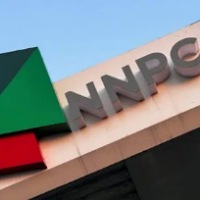
Modupe Asudo
Major players in the oil and gas sector in Nigeria led by the Nigerian National Petroleum Company Limited (NNPCL) have covenanted to optimise operations by reducing contracting cycle to not more than 180 days.
A statement issued by the company disclosed that the Memorandum of Understanding (MoU) to this effect was endorced on Monday in Abuja at the company’s head office.
Other parties to the the contract include, the Nigerian Content Development and Monitoring Board, (NCDMB) and international oil companies.
Biztellers reports that an optimised contracting cycle was expected to improve the ease of doing business, reduce cost and drive efficiency, which would eventually translate to production growth, increased revenues, and ultimately improved profitability.
In addition, the MoU was expected to contribute significantly to the double-digit economic growth rate agenda of the Federal Government and generate value for all stakeholders, including investors, companies, host communities and Nigeria.
Notable elements in the framework of the MoU, going by the statement, included a reduction of the contracting cycle for open competitive tender, selective tender, and single sourcing tender to 180, 178, and 128 working days respectively.
This was in contrast with the current best effort performance of 327, 333, and 185 working days respectively.
According to Group Chief Executive Officer, NNPCL, Mele Kyari, signing the agreement portends exciting times for Nigeria’s oil and gas industry, in addition to standing as a bold testimony that the company was plunging into the future of hope, productivity and success.
Kyari, represented at the occasion by Executive Vice President, Upstream, NNPCL, Oritsemeyiwa Eyesan, pointed out that with oil and gas as the bedrock of Nigeria’s economy, there was need to get the contracting process in the Industry right so as to get the economy back on track.
In his remarks, Executive Secretary, NCDMB, Simbi Wabote, described the MoU as a way forward and a critical step towards enhancing the nation’s crude oil production.

